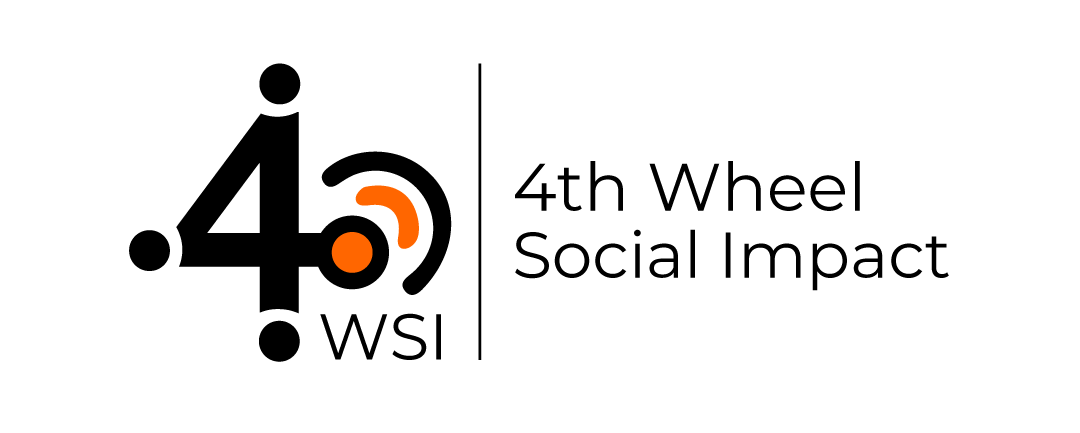Adani Greens
- Aug 21, 2025
- 3 min read
Updated: Aug 28, 2025

Adani Greens
CSR Foundation
Partner/Client
Adani Green Energy Limited (AGEL)
Sector
CSR Foundation
Location
Maharashtra

Key Highlights
Adani Green Energy Limited (AGEL), an integral component of the Adani Group, is one of India’s leading companies in the renewable energy sector. The Foundation actively dedicates its efforts to key domains, including education, healthcare, sustainable livelihoods, skill development, and building community infrastructure. Adani Greens partnered with 4th Wheel to conduct a comprehensive needs assessment in three districts of South Maharashtra. This report specifically delves into the information gathered from two blocks, covering 11 villages, conducted between October 2023 and December 2023.

Approach
Village Profile Tool: Each of the two project locations was assessed via a village profile tool, as per the program design, to gain insights into village details and demographics, infrastructure, housing and living conditions, education status, health status, livelihoods and employment, and migration patterns. Each location was subsequently scored via a scoring framework to identify vulnerabilities and areas of support.
Institution Profiling: The villages’ education, healthcare, FPO, energy, and other community institutions were profiled to gain insights into their respective status, spending, and needs.
Structured Interviews: Structured interview tools were deployed for each of the respondents, including Sarpanch, Anganwadi Worker (AWW), Accredited Social Health Activist (ASHA), Farmer Producer Organisation (FPO), Primary Health Centre (PHC), School Principal, Self-Help Group (SHG), School Management Committee (SMC), Village Health Sanitation Nutrition Committee, and Women Leader.
Sampling: 86 respondents were reached via purposive and snowball sampling.
NGO Analysis: To improve the social impact, various NGOs were analyzed to identify potential collaborations based on contextual development needs, existing development assistance, social organizations, and prospective partners.

Insights and Findings
Critical Need for Healthcare and Education: Upon M&E analysis, it was found that certain regions are particularly vulnerable and need urgent healthcare and education infrastructure improvements. Strengthening these services in larger hubs is crucial as they cater to a significant portion of the population.
Unique Vulnerabilities: Specific vulnerabilities have been observed, such as an ageing population in some areas, high levels of migration in others, and displaced communities with youthful demographics. Tailored interventions are necessary to address these distinct challenges effectively.
Immediate Livelihood Support: Urgent interventions are required to support income generation and livelihoods across all communities. Strengthening community-based organizations such as Self-Help Groups (SHGs) and Farmer’s Producer Organizations (FPOs) in larger hubs can facilitate broader community inclusion and a more comprehensive approach to development.
Sustainable Community Engagement: Engaging communities through SHGs and FPOs addresses immediate needs and fosters long-term resilience. Empowering locals to participate in decision-making and resource management promotes sustainability and adaptability, laying the groundwork for long-term development outcomes.
Recommendations / Value Addition
Infrastructure Improvement: After impact evaluation, the report recommends fostering public-private partnerships to upgrade internal roads, prioritize village-level drainage systems, and improve mobile connectivity. These efforts aim to address pressing issues related to transportation and basic infrastructure in the villages.
Innovative Transportation Solutions: Introducing pilot programs to encourage entrepreneurial ventures among village youth, such as private transport services, offers a sustainable approach to tackling transportation limitations. This strategy leverages local resources and entrepreneurship to improve mobility within the community.
Healthcare and Education Enhancement: Multi-year interventions are proposed to strengthen healthcare and education facilities. This includes providing renewable electricity sources, upgrading infrastructure in Anganwadi Centers (AWCs) and schools, and implementing maternal and neonatal healthcare programs to combat prevalent health issues effectively.
Livelihood Support: The report suggests establishing Farmer Producer Organizations (FPOs) and supporting women’s micro-enterprises to address farming challenges and promote economic empowerment. Initiatives like setting up a honey-related MSME firm and scaling up existing micro-entrepreneurship programs with mentoring support are recommended to bolster village livelihood opportunities.




Comments